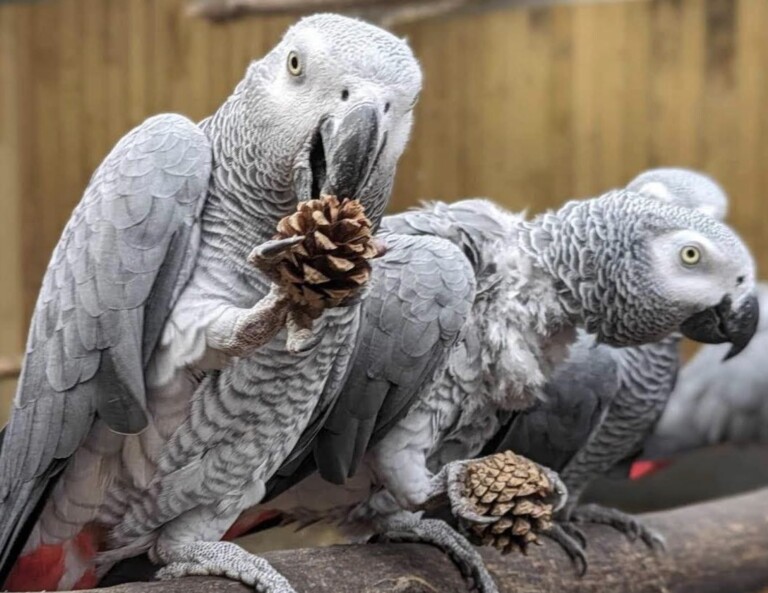Lincolnshire Wildlife Park in the UK is to transfer a group of foul-mouthed parrots to a larger flock in a bid to stop them from swearing.
The cursing birds, five African grey parrots, first made headlines in 2020 after staff removed them from display for swearing at guests.
The parrots, named Billy, Tyson, Eric, Jade and Elsie, spent three months in isolation before being put back on display.
Since then, however, three more parrots – named Eric, Captain and Sheila – have picked up the bad language from the original offenders.
Steve Nichols, chief executive of the wildlife park, said he plans to move them into a different enclosure with up to 100 other parrots to dilute the swearing.
“Parrots are flock creatures. They need to be with other parrots. The bigger the flock, the happier they are,” he told the BBC. “Even though they swear, the welfare of the birds has to come first.”
However, he added: “We could end up with 100 swearing parrots on our hands. Only time will tell.”
Despite this risk, Nichols thinks the expletives “will be diluted”. Staff at the zoo hope the potty-mouthed parrots will copy the other birds’ vocabulary.
“We could end up with 100 swearing parrots”
“People think parrots are loud birds but they talk quite quietly. I’m hoping, above the general noise of the flock, the swearing will be drowned out,” he explained.
Although Nichols believes the eight swearing parrots will continue to swear because the language is now in their vocabulary, he said he hopes they will “imitate other sounds as well” when they join the larger group.
“We have about 30 birds who make the beeping sound that a reversing lorry makes. Hopefully, the rest will pick up on that and there will be less swearing,” he said.
Lincolnshire Wildlife Park is home to the UK‘s largest collection of parrots. Around 2,000 parrots reside there.
Images courtesy of Lincolnshire Wildlife Park















